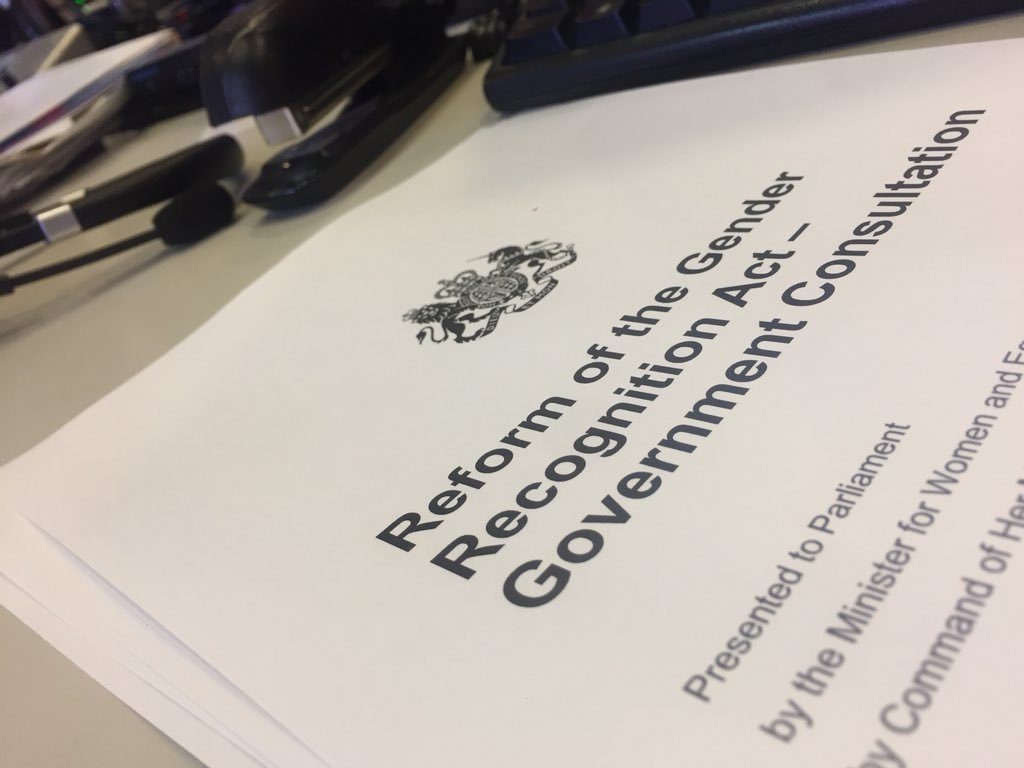Every major political party agrees the government is failing trans people by dropping GRA reform. Yes, even the Tories

Liz Truss originally planned to remove the requirement of a gender dysphoria diagnosis. (Getty)
LGBT+ Conservatives, the official queer wing of Britain’s ruling party, expressed their dismay at the “modest tweaks” to the Gender Recognition Act (GRA) that “fall short” of what the group campaigned for.
Capping off a truly dispiriting time for trans Britons, the Conservative government announced Tuesday (22 September) that plans to streamline gender recognition law will be scrapped. A devastating blow to a trans rights movement which has already been browbeaten with increasing rates of violence and immense media vitriol.
Indeed, after gathering dust in the inboxes of three equalities ministers across three years, the results of the sprawling public consultation were not what LGBT+ Conservatives were vying for, the group wrote in a statement published on Twitter Wednesday (23 September).
Our statement on yesterday’s GRA consultation announcement by @trussliz 👇
– Elena pic.twitter.com/csryIxS2SA
— LGBT+ Conservatives (@LGBTCons) September 23, 2020
With the Conservative Party’s LGBT+ bloc standing in favour of reforms, ministers’ handling of the GRA has winnowed as a bi-partisan issue with both the opposition Labour Party and the Liberal Democrats underlining their continued support.
LGBT+ Conservatives: ‘The longer there is delay on more meaningful GRA reform, the greater the risk for trans people.’
LGBT+ Conservatives noted that trans people have, in the last three years, been subjected to “vicious debates” around their existence due to the dragged-out announcement.
“After three years of consultation and delay on addressing the burning injustices faced by trans people, it is important to keep in mind that these proposals are modest tweaks, rather than the change needed to meaningfully level up opportunity,” the statement read.

The public consultation on the Gender Recognition Act was answered by over 100,000 people. (Conatus News)
“On their own, the proposals fall short of what LGBT+ Conservatives have campaigned and hoped for. On their own, they do not fulfil the Conservative Party’s manifesto commitment to level up opportunities for left-behind groups in our society.”
The group outlined the laundry list of “disappointments” from the GRA announcement. From the lack of non-binary or intersex recognition to the lack of changes to the set of criteria trans people must meet in order to acquire a gender recognition certificate.
The statement stressed that Conservative lawmakers must address the “points soon” and that LGBT+ Conservatives will continue to lobby: “The longer there is delay on more meaningful reform, the greater the risk opportunity will be levelled down for trans people.”
A bid for trans equality in Britain tamped by years of anti-trans lobby groups.
It all could have played out very differently.
In 2017, under Theresa May’s leadership, the government announced plans to modernise the GRA, the bedrock of all gender recognition legislation.
Soon enough, those against the reforms jockeyed it into a question of the future of women’s rights itself. Often using the debate over the reforms as a bitter proxy for debates over the very existence of trans people themselves and other combustible issues.
Such attitudes have done little to advance the discussion, human rights experts have warned, and instead sows discord in British society.

Minister for Women and Equalities Liz Truss. (Wiktor Szymanowicz/Barcroft Media via Getty Images)
The existing 2004 law and the draft bill both only govern the process for updating the gender of trans people on their birth certificates. Most other documents already operate on a self-declaratory basis, while discrimination laws apply to all trans people regardless of gender recognition status.
The current process by which trans people obtain a gender recognition certificate and change the gender marker on their birth certificate is, activists say, expensive, overly bureaucratic, intrusive, stressful and out-of-date.
Crucial legislative reforms which would have made it easier for people to change their gender were reduced to a topsy-turvy and drawn-out battle steeped in transphobic vitriol from lawmakers and anti-trans groups, determined to stymie the life-changing reforms to the point of tedium.
And, to the lack of surprise to a community so often used to rocketing rates of violence against them, a tactic of inflamed, freewheeling statements worked – Truss formally announced the government’s move to ditch the reforms.
Instead, despite thumping public support for the proposal, equalities minister Liz Truss said she wouldn’t be demedicalising the gender-recognition process in the UK, and that trans people using the GRA to gain legal recognition of their gender will still be required to obtain a medical diagnosis of gender dysphoria.

